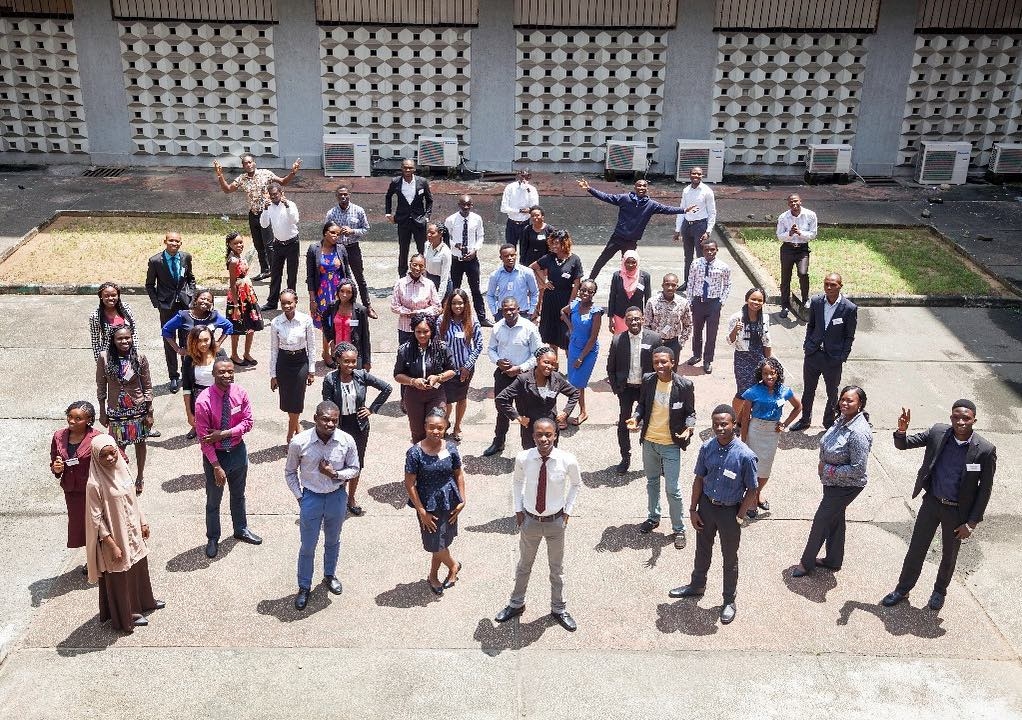
Induction
The first person I see
is Dami. The tall, lean fellow that I’d met during the interview process sits
among dozens of other fellows, leafing through some papers. The hall where we
are asked to keep our luggage and complete our registration is a bit tense,
thick with an air of uncertainty as the fellows, corporately dressed, exchange
light pleasantries as if grateful enough that they won’t be embarking on this
journey alone.
The day is July 10. A
moist morning in Lagos. We are converging in City Hall’s education hub to be
inducted into a fellowship that would span two years to Teach for Nigeria—TFN.
The fellowship will begin with a six-week Summer Training Institute (STI),
scheduled to start after induction.
Dami and I greet with a
warm embrace. He sees my luggage and immediately categorizes me with those who
have come to STI prepared as opposed to his own handy luggage. We laugh,
tentatively, and then follow our laughter with grim, tired faces that subtly
reveals the nagging question of, “what in the world are we doing here?” that we
still nurse.
We, the fellows, have
joined this fellowship with our stories stagnant in our throats, waiting to
gush out like water from leaking tap. Trained by dysfunctional education system,
landed jobs with slow beginnings, frustrated by the current state of the
country, we all came with our stories, like our baggage, in different shapes,
colors and sizes, still uncertain on that July morning and several days
afterwards. Of what it truly entails to Teach for Nigeria, of what we’d say
when people ask about our new “job”.
Pre-Institute
“I got a fellowship
with an NGO,” I often said, prior to STI, when family and friends wanted to
know why I was quitting my old job. They would lighten up, an involuntary
flash, probably at the last word, and ask, “what NGO?”
“Teach for Nigeria,”
I’d say, and there is this smirk on their faces.
“You will be teaching?”
“No, not really.” I’d
come up with a vague explanation that would make TFN seem like one of those
organizations with plush offices, where I’d lounge under air conditioning,
gawking at our far flung beneficiaries on a computer screen.
Institute
Training institute is a
serene place with a sprawling green campus, a vast expanse of field. I am
luxuriating in the sweet smell of flowers and trees. Facilitators come and go,
facilitating sessions on pedagogy, further revealing the education crisis in
Nigeria, urging us to go to the fields and be the solution.
Days are trudging into
weeks and we are internalizing the word “inequity” and it is becoming a
compass, gradually navigating us to what it means to Teach for Nigeria.
Inequity is forming the core of our daily analysis; it is helping us remember
how underserved the schools we attended were, how our former teachers shoved
down our throats their obsolete knowledge, expecting us to churn out that
knowledge and compete with it in a fast, evolving society, how little they
knew, how much they might have wanted us to know.
One of institute’s many
wonders is fellows’ ability to learn quick and divulge fast; the willingness to
surrender to that task which will strengthen our resolve about our new
commitment. We are beginning to remember our past lives, our previous days by
daily self-reflections. We reflect to become better persons at who we are, what
we do, to know the essence of STI and how the sessions we are having will help
us grasp better this fellowship, our fellowship.
Institute is also about
movies and pizzas, about fatigue from playing football and swimming practice,
about frayed nerves from writing the first lesson plan to the first day in
class at teaching practice, about conquering our fears and questioning our
prejudices. We are taking time out, in a coffee-shop like room, every night, to
share our life maps, to tell our stories. We listen to each fellow stand and
chronicle their life’s journey using a collage or a computer. We are becoming
twenty-first century teachers, the type we never had, who consider all the type
of learners in their classrooms when teaching. We cry when a fellow shares and
cries. We snap our fingers at their stellar achievements, making them glow with
pride. We are learning the art of empathy and praise, the skill of listening
without judging. This is what it means to Teach for Nigeria.
It means bonding with exceptionally smart
fellows who decided to teach in low quality schools instead of hunting for, and
landing well admired jobs. It means
rewriting the future of Nigeria, helping younger generation have the type of
education that will make them global competitors. It means being a teacher, and
no, not in classrooms with air conditioners, but in classrooms where even
without piercingly white ceilings and lofty arm chairs, our pupils will learn
to be in search of knowledge and wonders.